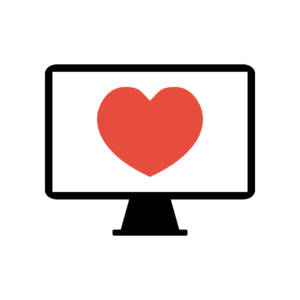Beyond Pinterest: Getting Hitched With High-Tech Tools
Couples have moved beyond basic wedding websites and into high-tech tools to help mind the details, hire help, and pay for their special day.
Technology is an inseparable part of our lives. We often think of ways we can use it to simplify work, home life and leisure, so it’s no surprise that engaged couples harness technology for all aspects of wedding planning. Couples have moved beyond basic wedding websites and using Yelp! to scope out potential vendors, and Pinterest is already a top planning resource. Meanwhile, other high-tech tools are taking center stage to help mind the details, hire help, and pay for that special day.
Mobilize With Organization Tools
Let’s face it: Planning your wedding is a project. That’s why some couples purposely turn to management, collaboration and information-collecting high-tech applications to organize their nuptials. For example, Evernote allows users to create individual “notebooks,” write notes, create task lists, clip photos and articles from the web, archive information and even set reminders. Meanwhile, others turn to nuptial-specific tools such as Wedding Wire Canada, described by CBC writer Katrina Clarke as a free service that helps couples locate vendors, discover décor and style ideas, plan a budget, and create to-do lists. You’ll want to make sure that your desired planning app supports Canadian users, but you should also evaluate several other factors:
- Functionality and ease of use
- Support for multiple media types such as text, photos and video
- Available storage space for saves and uploads
- Ability to share access with other users
- Cost for usage and pricing plans
Wedding Websites That Help You Plan
Couple-created wedding websites originated in the late 1990s. Some designed their own homegrown versions and published them on free hosting providers and independent ISP accounts. Meanwhile, TheKnot and other purveyors of nuptial planning advice debuted their own free website services alongside gift registries, budgeting utilities and online planners.
Personal wedding websites have come a long way in the last two decades. Besides supplying information about your event and allowing you to show off cutesy engagement photos, modern high-tech versions offer standard planning tools and advanced features such as online invitations, RSVP tracking, guest management and social media integration. Many, such as Zola and Joy, also provide visual matching between your website and your invitations so that the two share the same look and feel. Writing for Woman Getting Married, Lindsey Goldberg Jones lists and describes key features of the most popular services available.
Money Matters: Budgeting With Apps
If your favorite high-tech app doesn’t involve budget capabilities and expense tracking, it might be wise to add one to your arsenal. In a 2017 Brides article, contributor Molly E. McHugh revealed that money-management utilities such as Mint can be used to budget your event. Although it’s not wedding-specific, Mint permits Canadian users to detail spending plans, log expenses and submit payments to vendors.
High-tech Apps for Hiring Helping Hands
You and your partner can only do so much, so you might benefit from outsourcing services for all those extra wedding-related tasks. In a 2016 write-up, Medium contributor Sarah Schacht discloses her go-to tools. For instance, FancyHands is a United States subscription service that provides English-speaking assistants to perform tasks such as reservations, quotes, appointment scheduling or basic information gathering. AskforTask is a Canadian service that allows you to delegate small jobs such as decoration and setup for your event.
If you’re getting married, you might feel swamped by all the details involved. Couples used pen and paper in the past to keep track of essentials and minutiae, but both newbies and the tech-savvy can take advantage of new and emerging wedding planning apps. At the same time, popular productivity favorites can also be repurposed in new ways. Either way, you’ve got many high-tech possibilities right at your fingertips to help you pull your wedding together.
Using Apps to Plan for Your Wedding
If you’re currently preparing for your wedding, you definitely want to explore what tech and apps might be able to help.
Technology has taken the human race to some interesting places. Only a few decades ago, the idea of communicating face-to-face with someone on the other side of the planet seemed impossible. Now, you can pull out your phone and video chat with anyone you wish, regardless of where the person lives. Life has been made a lot easier by the presence of modern technology, especially apps. This is as true of communications as it is of planning for a wedding. If you’re currently preparing for your wedding, you definitely want to explore what tech and apps might be able to help.
There are many exciting paths you can explore when it comes to using technology for the planning phase. Above all else, you definitely are going to want to take a look at which apps are best suited for the job. To help guide you through your journey, take a look at these suggestions for applications you can download to your smartphone or tablet. Finding the perfect apps might make your life a whole lot easier in regards to planning an event you adore.
C’mon Get Happy
When planning for a wedding, there are many different categories you need to keep in the forefront of your mind. You’re going to be looking over your budget, contacting vendors, trying on clothing, sampling food, and generally rushing from one place to another until you finally walk down that aisle. This means you are going to need help with keeping track of everything that is on your schedule so you do not miss out on anything important. A vast majority of the apps out on the market exist for this specific purpose.
Brides and grooms can always benefit from reminders and scheduling assistance. If you are a person who needs to have all of your information condensed into one simple place, an app like WeddingHappy could make sense for you. This app helps you to create a sensible schedule of all the various activities and appointments you have to take care of before your wedding arrives. Seeing the schedule on your phone can help to give you peace of mind and inform you of where you need to be at each step of the journey.
No More Paper
In the current day and age, there has been a big push to protect the environment. One way people have been approaching this is by discovering new and useful ways of conserving resources like water and trees. The production of paper, for example, tends to lean heavily on the planet’s reserve of trees. With a wedding, a lot of paper is involved. Even when you opt for invitations made from recycled materials, those invitations could wind up in the trash and add to the garbage piling up around the planet.
If you care about the environment and want to make life easier for your wedding, think about using an app like Joy. One of the best features of this application is the option of communicating with your guests via the app itself. The designers have made it easy for your guests to R.S.V.P. electronically, eliminating the need for paper invitations. When you want to help the planet while making your wedding planning a bit easier in the process, Joy could be the app you’ve been looking for.
Tomorrow Is Today
Planning for a wedding might be a stressful situation at times, but that doesn’t mean there isn’t help out there. Using technology to your advantage might completely change the way that you approach your plans. There are countless apps out there designed to help couples. Discover the perfect fit for your needs and give yourself a bit of peace of mind moving forward.
Technology Comes to the Sanctuary
If you watch crime procedurals on television, you’re aware of facial recognition software. It’s being used in many different venues these days, from cruise ships to casinos. It’s been reported that most police agencies in Canada are using the technology in crowds to identify criminals or rioters who could create potential problems. One place not many people would expect to be scanned is in their religious building, but according to many different sources, church facial recognition software is being implemented to help the staff count and identify who is worshipping and who isn’t.
Proponents of Facial Recognition Software
One organization, based in Israel, created a software specific to churches called Churchix. Reportedly, it provides services to about 30 churches around the world, although it has refused to share which specific groups use the technology. It helps the church keep a roll call of people not just at services, but at every event. First, the church creates a database of pictures of their members. During worship, a camera can move through the crowd and keep track of who is in attendance.
Supporters report that this cuts down on administrative duties for the staff. This lets the church get an accurate count of who is in church and who isn’t. It also helps the staff get to know people better by associating a picture with a name. Another purported benefit is that of facial tagging on social media or in newsletters. The editor can more easily identify people in photos, giving credit where credit is due. The technology can also help with demographics at events, not only getting a head count, but seeing the ages, gender, and even race of those in attendance.
Critics of the Technology
If you were to go back in time, you’d probably hear a discussion about whether a church should have a telephone or electricity. There’s always been opponents of newer technology, especially in the church. It wasn’t too long ago that people were upset with their administrations for keeping a database of members on the computer.
The biggest concern with facial recognition software in the sanctuary is a loss of privacy. That’s not to say it’s the only one. In a faith-based setting, there’s certainly the lack of personal interaction. Would the staff neglect direct contact in lieu of facial imaging? Going back to the privacy concern, one potential problem is in cross-matching. Your face print taken by the religious organization might be used for another purpose without your consent. It’s a scary slippery slope, when you consider database-matching software or hackers in the equation.
Ask Questions Now
Interestingly, Churchix cites privacy concerns and doesn’t share the names of churches who are currently using the technology. In fact, it was intimated in one report that Churchix wasn’t even sure that the members of the church were aware that the leaders were using facial recognition software. If there’s a camera around, whether it be in the sanctuary or in a store, you should assume that the establishment is using facial recognition software.
Just three years ago, the Research Group of the Office of the Privacy Commissioner of Canada came out with a report about facial recognition software, and nowhere in the report does it even think about the technology being used in religious circles. There are certain places where we’ve always expected a modicum of privacy, but as religious organizations embrace the 21st century, this attitude may need to be reconsidered.
Before the use of this software is considered normal, it might be time to question it and put constraints on its use. It is a viable technology in certain circumstances. Digital imagery is becoming more accurate. There may be a use in religion to alleviate administration duties, but the community as a whole should be made aware of its use. It might be time to start a discussion in your faith organization about how your congregation will address this issue.





